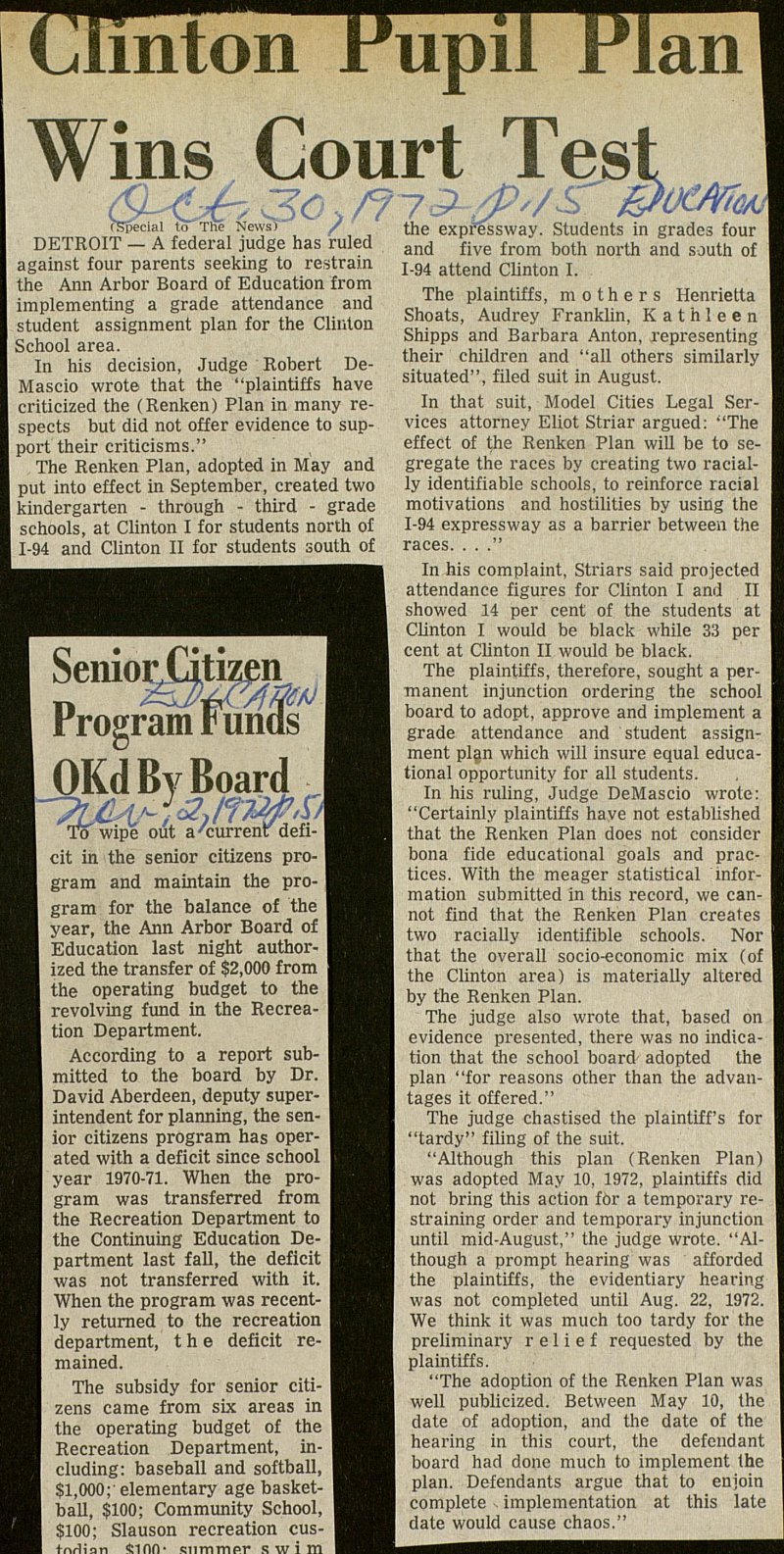Clinton Pupil Plan Wins Court Test

DETROIT - A federal judge has "ruled against four parents seeking to restrain the Ann Arbor Board of Education from implementing a grade attendance and student assignment plan for the Clinton School área. ín his decisión, Judge Robert DeMascio wrote that the "plaintiffs have criticized the (Renken) Plan in many respects but did not offer evidence to support their criticisms." The Renken Plan, adopted in May and put into effect in September, created two kindergarten - through - third - grade schools, at Clinton I for students north oí 1-94 and Clinton II for students south of the expfessway. Students in grades four I and five from both north and south of I 1-94 attend Clinton I. The plaintiffs, mothers Henrietta Shoats, Audrey Franklin, Kathleen Shipps and Barbara Antón, representing their children and "all others similarly situated", filed suit in August. In that suit, Model Cities Legal Services attorney Eliot Striar argued: "The effect of the Renken Plan will be to segregate the races by creating two racially identifiable schools, to reinforce racial motivations and hostilities by using the 1-94 expressway as a barrier between the races. . . ." In his complaint, Striars said projected attendance figures for Clinton I and II showed 14 per cent of the students at Clinton I would be black while 33 per cent at Clinton II would be black. The plaintiffs, therefore, sought a permanent injunction ordering the school board to adopt, approve and implement a grade attendance and student assignment plan which will insure equal educational opportunity for all students. , j In his ruling, Judge DeMascio wrote: "Certainly plaintiffs have not established that the Renken Plan does not consider bona fide educational goals and practices. With the meager statistical information submitted in this record, we cannot find that the Renken Plan creates two racially identifible schools. Nor that the overall socio-economic mix (of the Clinton área) is materially altered by the Renken Plan. The judge also wrote that, based on evidence presented, there was no indication that the school board adopted the plan "for reasons other than the advantages it offered." The judge chastised the plaintiffs for "tardy" filing of the suit. "Although this plan (Renken Plan) was adopted May 10, 1972, plaintiffs did not bring this action for a temporary restraining order and temporary injunction until mid-August," the judge wrote. "Although a prompt hearing was afforded the plaintiffs, the evidentiary hearing was not completed until Aug. 22, 1972. We think it was much too tardy for the preliminary relief requested by the plaintiffs. "The adoption of the Renken Plan was well publicized. Between May 10, the date of adoption, and the date of the hearing in this court, the defcndant board had done much to implement the plan. Defendants argue that to enjoin complete implementation at this late date would cause chaos."